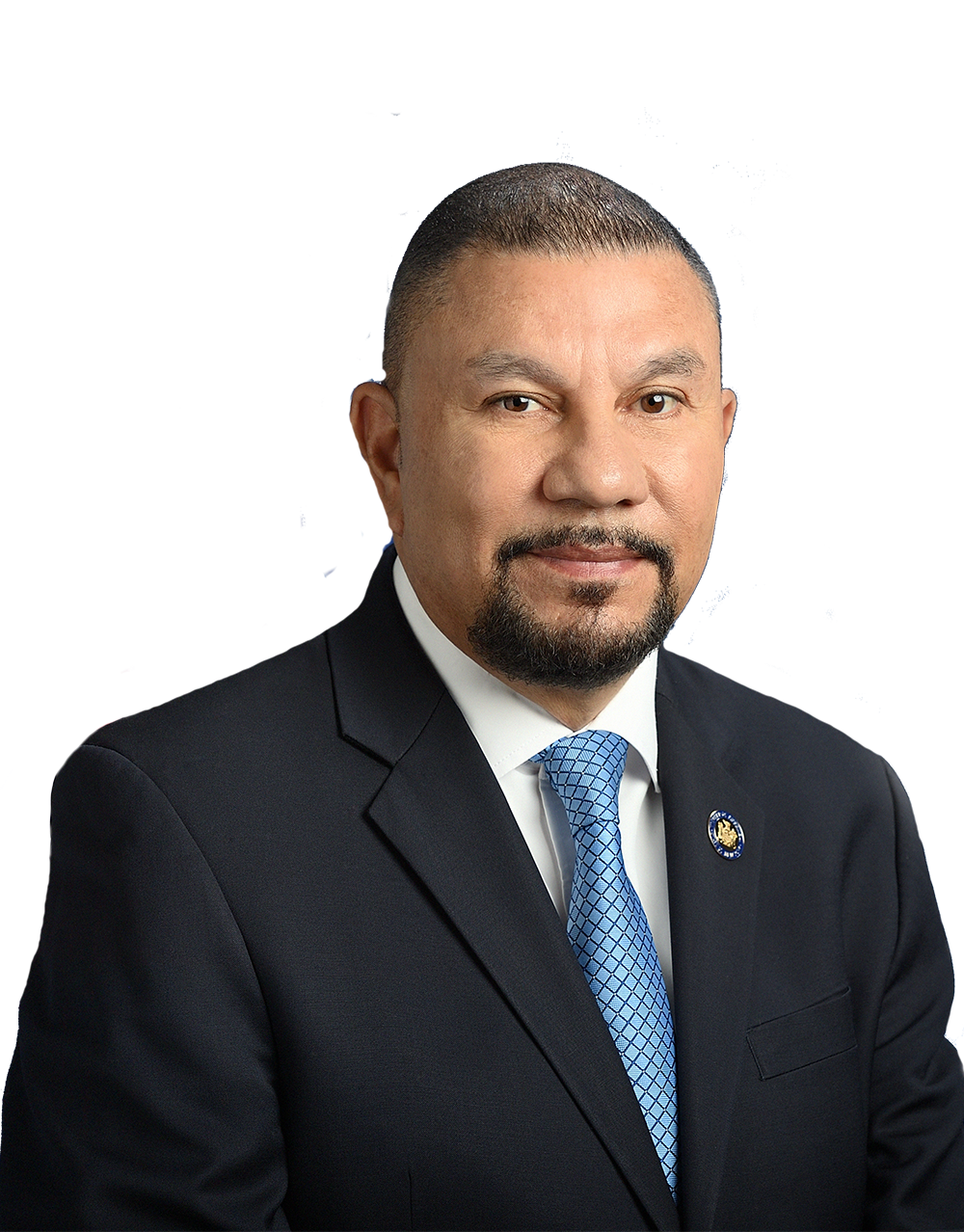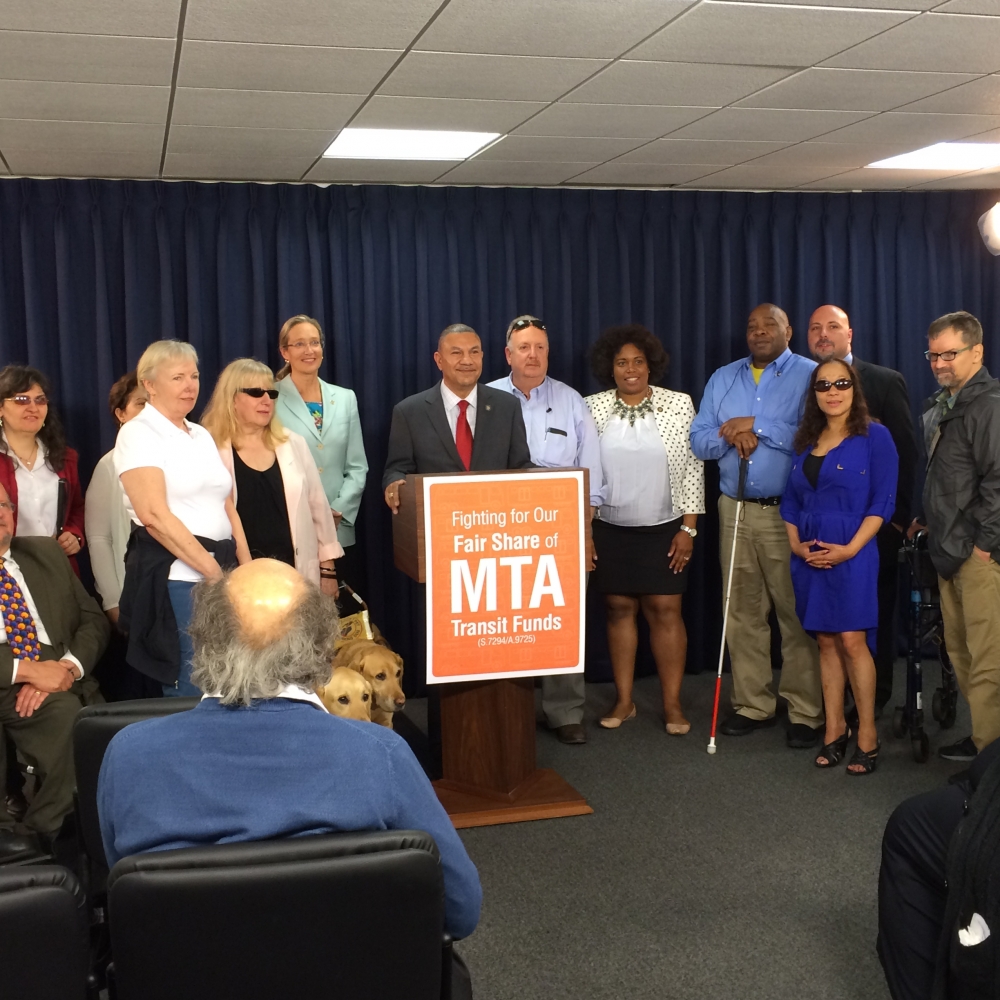Support Surges in Albany for Fair Share of MTA Funds for Suburban Counties
In their fight to ensure suburban counties around New York City get their fair share of MTA funds, Assemblyman Phil Ramos (D-Suffolk) and Senator Jack Martins (R-Nassau) were joined by transportation advocates and members of the NYS Assembly’s Black, Puerto Rican, Hispanic & Asian Legislative Caucus in calling for passage of a bill they’ve authored to ensure counties – like Nassau and Suffolk – receive a portion of revenue from the Metropolitan Transportation Authority (MTA) payroll tax (S.7294/A.9725).
“For too long, the MTA has tried to balance its books on the backs of hardworking New Yorkers while the suburban communities it services have seen little or no return,” said Assemblyman Ramos. “It’s only fair that a portion of the proceeds from the MTA payroll tax be used in a way that will benefit the local communities that are footing the bill.”
“The MTA payroll tax should never have been passed in the first place and must be repealed entirely. Until that happens, Long Island and the other suburban counties in the MTA region deserve to know they’re getting a guaranteed return and not having all their money funding services in other areas. Requiring a portion of these funds to be devoted solely towards mass transit services in those regions is the right thing to do. The Legislature must pass this legislation before the end of session,” said Senator Martins, who is sponsoring the legislation in the Senate.
The MTA payroll tax is currently imposed on certain employers and self-employed individuals doing business within New York City and the surrounding counties to support operational costs incurred by the MTA. But while suburban communities are subject to the tax, use of the funds for maintenance and improvements is often concentrated within the city, noted Ramos.
“Long Island needs the opportunity to develop more transit-oriented development. An essential ingredient for success is a vibrant, more extensive suburban mass transit system,” said Christopher Capece, Senior Development Director of AvalonBay Communities Inc. “Albany needs to step up and agree to invest a meaningful option of the MTA Tax revenue back to our suburban bus and transit system. Long Island employers desperately need to see their NYS tax burden work for Long Island economic development.”
“I am grateful to Senator Martins, Assemblyman Ramos and all the advocates who are fighting for this critical legislation which will help Long Island get its fair share,” Suffolk County Executive Steve Bellone said. “This legislation would allow us to expand mass transit by sending a little less of our money to New York City and keeping some of it on Long Island to meet our local needs.”
The legislation would ensure a portion of the revenue collected via the MTA payroll tax is returned to suburban counties, including Suffolk and Nassau, to provide a 50 percent subsidy of local costs for mass transit and a 50 percent reduction in the costs of local station maintenance. Long Island communities are expected to receive approximately $50 million as a result.
“Suffolk Independent Living Organization (SILO) strongly supports Senate bill S7294 and Assembly bill A9725, which are legislative bills that would allocate $50 million of the MTA payroll tax for Long Island Transportation needs. These funds would be used to expand bus service, including services for people with disabilities. For a person with a disability to live in their community they must have accessibility to all available services. An enhancement to Suffolk County’s transportation system will offer people with disabilities more opportunities to attain employment, partake in social and recreational activities and be full participants in the Suffolk County community,” said Joseph Delgado, Executive Director of Suffolk Independent Living Organization (SILO).
Since the MTA Payroll Tax was enacted in 2009, the suburban delegation has consistently fought for exemptions that alleviate the burden on their communities. In 2011, they helped reduce the tax and exempt nonpublic schools, providing financial relief to more than 700,000 small businesses and self-employed New Yorkers.

